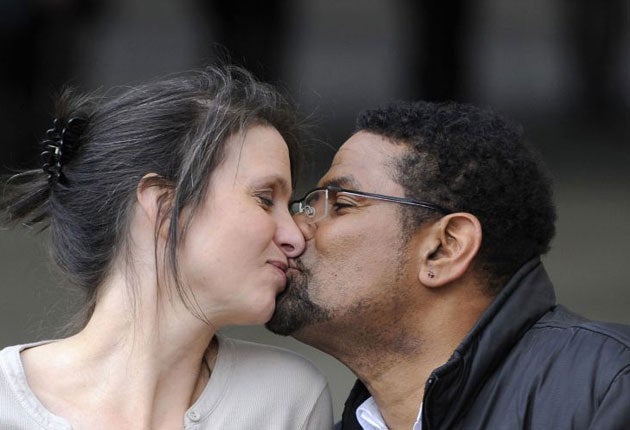Woman loses battle on assisted suicide

A woman suffering from multiple sclerosis today lost her landmark legal bid to clarify the law on assisted suicide.
Wheelchair-bound Debbie Purdy listened as two senior judges rejected her High Court application for a ruling to force the Director of Public Prosecutions to offer further guidance.
Her lawyers argued the DPP was in breach of her Article 8 right to respect for her private and family life under the European Convention on Human Rights because of his failure to make the law clear.
Ms Purdy, 45, from Undercliffe, Bradford, West Yorkshire, wants to know if her husband will be prosecuted if he helps her travel abroad to die.
But today Lord Justice Scott Baker and Mr Justice Aikens ruled at London's High Court that her human rights had not been infringed.
Lord Justice Scott Baker said: "We cannot leave this case without expressing great sympathy for Ms Purdy, her husband and others in a similar position who wish to know in advance whether they will face prosecution for doing what many would regard as something that the law should permit, namely to help a loved one go abroad to end their suffering when they are unable to do it on their own.
"This would involve a change in the law. The offence of assisted suicide is very widely drawn to cover all manner of different circumstances; only Parliament can change it."
Ms Purdy was granted permission to appeal because of public interest in the case.
Ms Purdy says she wants to "live forever".
However she is a member of Dignitas, the Swiss organisation which operates specialist euthanasia clinics.
Now gradually losing strength in her upper body, she plans to travel to Switzerland to end her life if her condition becomes unbearable,
But she fears that her husband, Cuban violinist Omar Puente, could face a jail sentence if he helps her.
In England and Wales, aiding and abetting suicide is a criminal offence punishable by up to 14 years in prison.
If today's ruling is not overturned on appeal, and the law is not changed, she believes she may have to end her life earlier than otherwise might be necessary so that she can do it without help, and thus avoid putting her husband at risk of prosecution.
She was diagnosed with primary progressive MS in 1995 and has been a wheelchair user since 2001.
In a recent hearing at the High Court, her lawyers accused the Director of Public Prosecutions (DPP), Sir Ken Macdonald, of failing in his duty under human rights laws to give clear guidance.
The DPP argued that the law had already been made clear by provisions of the 1961 Suicide Act, and guidance contained in the Code for Crown Prosecutors.
There was no specific policy on assisted suicide, nor was there a legal obligation to publish one.
Ms Purdy's legal challenge was supported by Dignity in Dying, formerly the Voluntary Euthanasia Society.
No relatives of 100 UK citizens who have so far gone abroad to die in Dignitas clinics have been prosecuted, but Ms Purdy's lawyers argue there is still "a real risk".
David Pannick QC, for Ms Purdy, said: "Her dilemma is that she wants to delay her suicide as long as possible. She wants also to avoid the danger of her husband being prosecuted for assisting her.
"If he is likely to be prosecuted, then she is much more likely to travel abroad to commit suicide sooner rather than later."
He told the judges: "There is nothing in the general code that provides the clarity of guidance that European Court jurisprudence requires."
Ms Purdy and others like her needed clarity to "make one of the most fundamental decisions about their lives, and their death".
Before today's judgment, Ms Purdy said: "For me it's a matter of life or death.
"The law needs to be clarified. It's confusing and we shouldn't have something that is so spurious.
"I can't believe we have got to go to court to ask them to be logical."
Join our commenting forum
Join thought-provoking conversations, follow other Independent readers and see their replies
Comments
Bookmark popover
Removed from bookmarks